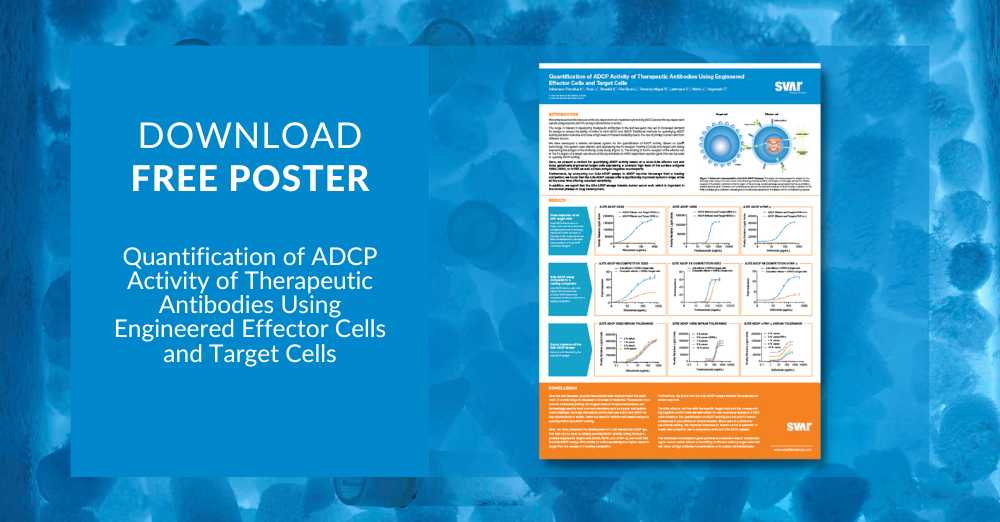- Other Products
- CCP
Many therapeutic antibodies use antibody-dependent cell-mediated cytotoxicity (ADCC) and antibody-dependent cellular phagocytosis (ADCP) as key mechanisms of action.
Here, we present a method for quantifying ADCP activity based on a novel iLite® effector cell and three genetically engineered target cells expressing a constant high level of the surface antigens CD20, HER2, or mTNF, as well as their antigen-negative counterparts.
Furthermore, by comparing our iLite ADCP assays to ADCP bioassays from a leading competitor, we found that the iLite ADCP assays offer a significantly improved dynamic range, while at the same time offering excellent sensitivity.


Many therapeutic antibodies use antibody-dependent cell-mediated cytotoxicity (ADCC) and antibody-dependent cellular phagocytosis (ADCP) as key mechanisms of action.
Here, we present a method for quantifying ADCP activity based on a novel iLite® effector cell and three genetically engineered target cells expressing a constant high level of the surface antigens CD20, HER2, or mTNF, as well as their antigen-negative counterparts.
Furthermore, by comparing our iLite ADCP assays to ADCP bioassays from a leading competitor, we found that the iLite ADCP assays offer a significantly improved dynamic range, while at the same time offering excellent sensitivity.
The surge in developing therapeutic antibodies in the last few years has led to increased demand for assays to assess the ability of mAbs to elicit ADCC and ADCP. Traditional methods for quantifying ADCP activity are labor-intensive and have a high level of inherent variability due to the use of primary human cells from different donors.
Here, we present the development of a cell-based iLite ADCP system that can be used to quantify ADCP activity reliably.
The iLite effector cell line with the specific target cells and the corresponding negative control cells are well suited for use in potency assays in a CMC environment or the quantification of ADCP activity and the anti-Fc humoral response in pre-clinical or clinical studies.